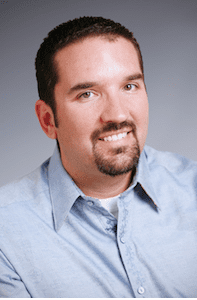The Pastor and Community Pastors
A gathering of community pastors is an intriguing affair. Pastors, while not admitting it, can be very competitive. I recall one pastor who came out on that, however. We were putting together a local church softball league. Christian men can go pagan very fast on a softball field. We wanted the games to be fun and relational. A colleague called one pastor and asked if he could tone down the edgy competitiveness of his team. That pastor responded, “Competition is what Christian ministry is all about!” Oh, really? It takes a special grace to meet as pastors, knowing that people, in a small community, are prone to migrate from church to church. It is hard not to feel some odd, if not awkward emotions. Pastoral collegiality has to be cultivated in relationships of respect, trust, and common vision for the spiritual needs to the community.
While serving for 24 years in my former church, I was a participant in RAMA—the Rockford Area Ministers Association. I liked it because it was mildly ecumenical. We had Methodists, Baptists, Lutherans, Catholics, non-denominational, Reformed, Christian Reformed, Presbyterian, Evangelical Free, United Church of Christ, and Pentecostal. Both female and male pastors attended. For the most part, I don’t think we took ourselves as area pastors too seriously. We had fun together. Yes, there were some stuffed shirts, but, hey, what vocation does not have a few of those? The local Catholic priest was one of the funniest guys. We, the RAMA pastors, did not reach the level of community that Eugene H. Peterson describes in his book The Pastor where he and a few fellow pastors regularly studied the liturgy together, with a Jewish rabbi in attendance.
As I recall RAMA met the same months as the public school year and we had a few annual assignments: conduct a community-wide Good Friday service, sponsor the high school baccalaureate program, and lead an annual walk for the local food pantry. We had a monthly meeting in which we had a devotional, discussed community needs, and listened to an invited guest who informed us of some pertinent local issue. The superintendent of the school system was a regular annual guest. We heard from law enforcement leaders, elderly care facility directors, funeral home directors, pastors from other communities, and local political or civic leaders.
One of the best things we did was to collaborate to create a unified program for premarital education. We observed that couples wanting to get married would seek the least path of resistance to the altar. We developed a community commitment to marriage which was published in the local area newspaper so that people would not “church shop” for the easiest pastor with the least requirements for getting married. We also had a system for alerting each other of scam artists who wanted to take advantage of the churches’ generosity. At the church I served, if someone came and wanted to be part of our church, but was under (proper) discipline at another local church, we refused them. We encouraged them to reconcile with their church.
At one point I became involved in a broader coalition of pastors, urban and suburban, African American, White, and Hispanic. We met primarily for prayer for our city (metro-Grand Rapids, MI), our neighborhoods and our churches. This movement had a magnetic intensity for a while, but then it seemed to have run its course. I learned startling things about racial inequality in our area as I participated in a racial reconciliation group. One characteristic of the Evangelical Covenant Church movement is it multicultural diversity. I enjoy being in a denomination that works hard at being a preview of heaven on earth.











